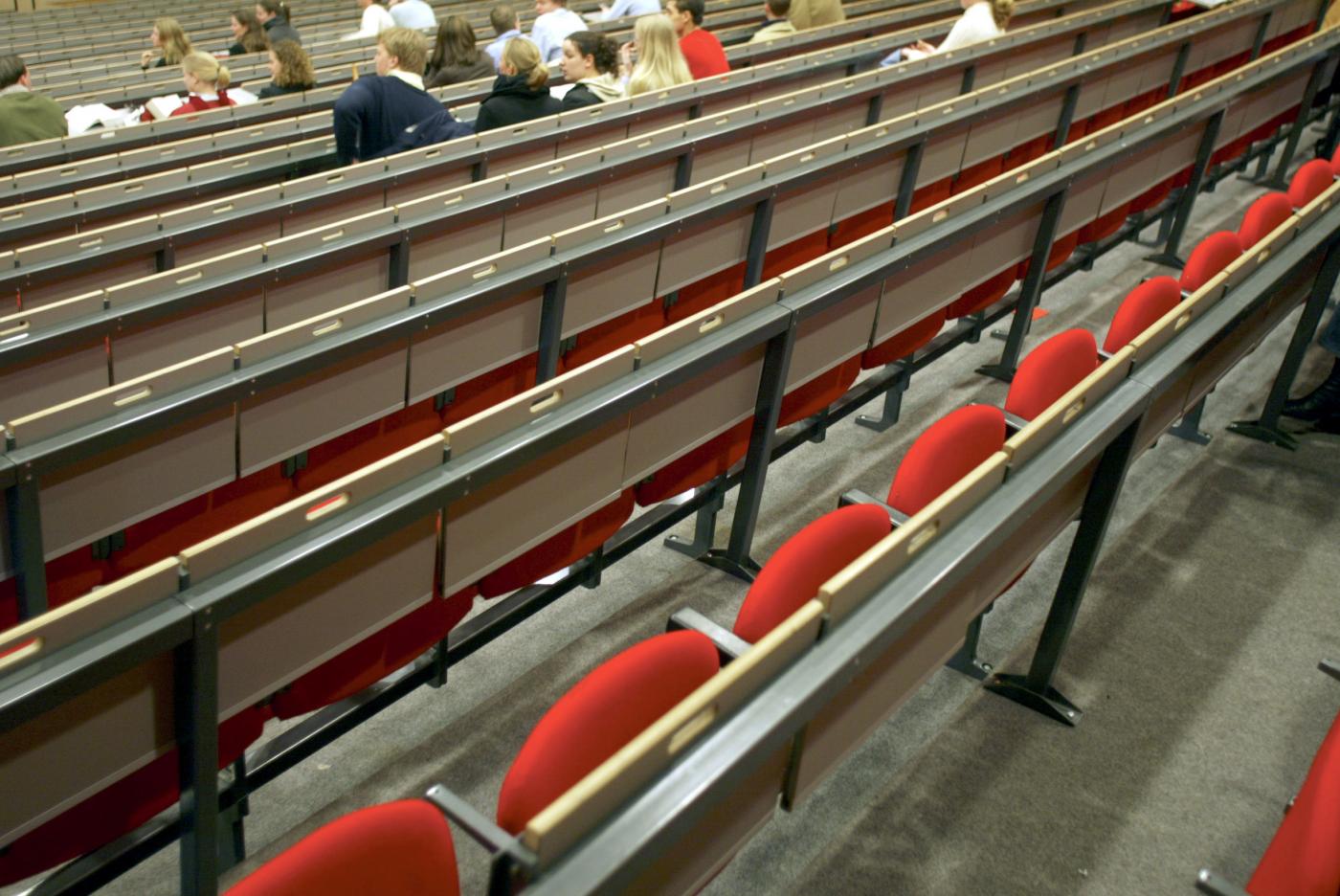The solution to empty lecture halls? 'Make higher education more attractive'

Online learning advanced greatly due to the Covid-19 pandemic. Now that the lecture halls are open again, a surprisingly large number of students are still staying at home. That doesn’t mean they are lazy, argues Joshua de Roos in an opinion piece (in Dutch only) published by the Dutch newspaper De Volkskrant. He feels that it is rather an indication of the “passive and individual nature of higher education”.
You write that lectures for a large number of students don't give them enough opportunity to engage in in-depth discussions and receive personal coaching from the lecturer. But isn’t that what workgroups are for?
“Sure. Workgroups offer many opportunities, but it still isn't enough. At the same time, the lectures are becoming bigger and bigger. I’m in favour of more opportunities for interaction in smaller groups.”
How well attended are workgroups since the measures to contain the spread of the coronavirus were abolished?
“In our understanding, workgroups are not being well attended either. They are probably better attended than lectures but the numbers are still lower than before the pandemic. Higher education institutions are trying to overcome this by making attendance compulsory. In my opinion, we ought to be asking ourselves why students are staying away.”
Doesn’t it mean that students aren't that interested in workgroups either, despite the fact that they offer more opportunities to interact and engage in discussions?
“I think they are interested in them. But, because of the Covid-19 pandemic, some students are not fully aware of what they are missing out on if they don’t attend classes in person. They have become accustomed to focusing only on what they need to pass an exam, but that information can generally be found in a book. Workgroups often merely repeat the materials, so interesting ethical discussions are not always held.”
So is the substantive knowledge they can gain from classes no longer of interest to students? After all, they chose their own study programme.
“Some students choose a particular major because it increases their chances of getting a good job, so the choice is not always made out of personal interest. But that knowledge is definitely important because they need it to graduate. I think things would be more motivating if education would not only focus on the transfer of knowledge alone. It would be good if classes would be linked to personal development more often and if more attention was paid to students’ mental health.”
Teachers are busy people. If they paid more attention to students' personal development and mental health, wouldn't that be to the detriment of the subject matter?
“Personal development is oftentimes about the link you make between the subject matter and your own life, who you are, and the world in which you live. I think they go hand in hand. If we incorporate more personal development and interaction into teaching, classes will become more enjoyable and interesting for students, who have lost the connection with the university. That's why they are coming to campus less frequently.”
Isn’t this a chicken and egg situation? Wouldn’t students feel more connected to each other and their teachers if they went to class?
“Of course, students have their own responsibility in that regard. I do think, however, that they would be more interested in attending classes in person if the teaching were to be organised differently. I would encourage students to be critical about their classes and state what they need clearly. Starting a discussion on that topic is worthwhile.”